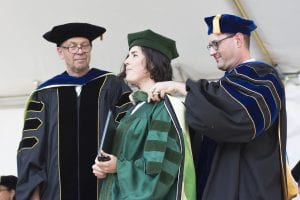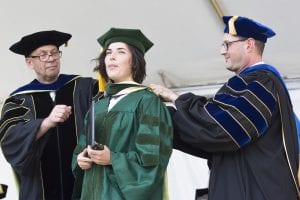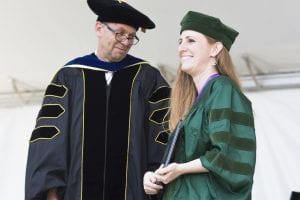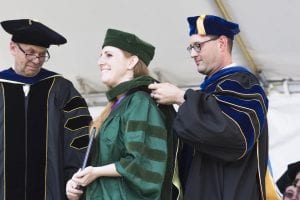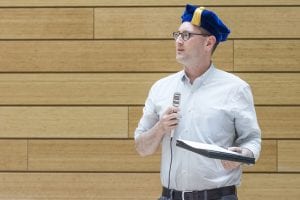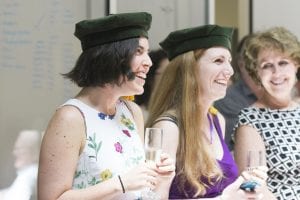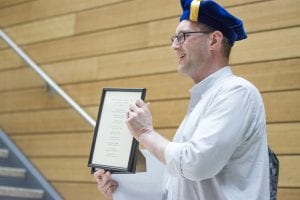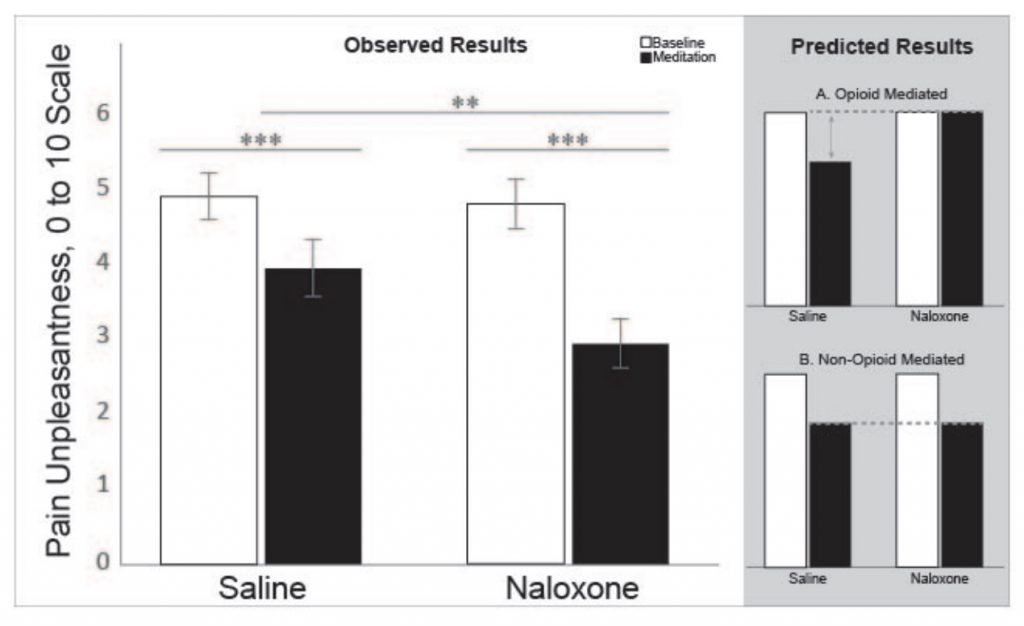We’re pleased to announce that the Social and Affective Neuroscience lab at UO will be accepting a new doctoral student to begin in Fall 2025!
Is this position right for you? It might be if you share our lab values:
Content: Our values and priorities around the work we do
We aim to develop and translate scientific knowledge about goals, motivation, and self-regulation from neuroscience and psychology to inform pressing social issues.
The purpose of doing this work is to generate impact on applicable topics such as health behavior change at the individual and societal levels. The scientific purpose of our work is to pioneer innovative theory, methods, and applications of empirical knowledge.
Process: Our values and priorities around how we work and learn
We use rigorous, open, and interdisciplinary scientific methods in our research, and foster a supportive, robust, and personalized training environment. Specifically, our process values are:
- Scientific rigor: Our scientific products should be accurate, reliable, and reproducible.
- Open science: Our scientific tools, methods, data, and results should be accessible.
- Interdisciplinary research: Our scientific approaches should draw from the best and most relevant ideas and methods from any field or discipline.
Our training values are:
- Supportive environment: We should unconditionally support each other in our work, fully recognizing the challenges of this field and the multitude of ways to fulfill our mission.
- Robust education: Trainees in the lab should gain not only deep expertise in one or more content areas but also internalize the process of scientific knowledge creation and continuous learning.
- Personalized training: Trainees get the bespoke training in the skills they determine they need. The PI works with each trainee to help identify the targeted skill set.
Social: Our values and priorities around how we interact with each other
We care about transparency, open communication, scientific knowledge generation, and social inclusion. These values are expressed in the respectful way we interact with each other and our collaborators, with our participants, and with the lay public at large who are the primary sponsors and beneficiaries of our research.
We’re also looking for something very specific this year because of Elliot’s role in the CAS Dean’s Office. Here is an important message from Elliot that all potential candidates should read:
I have a policy of not meeting with prospective applicants for the sake of fairness. I don’t want to disadvantage people who wouldn’t even know to ask to chat before they apply. Instead, I’ve put together some information below that I share with any prospective applicants who contact me that I hope will answer the most common questions that applicants have. I’m happy to answer additional questions that aren’t addressed here via email.
What are the major research directions for the lab in the next five years?
The overarching direction for the lab will continue to be what we call translational neuroscience—using neuroimaging and particularly fMRI to develop and refine interventions for health and wellbeing. Check out more info about our Center for Translational Neuroscience, here. Another direction is the role of motivation and self in self-regulation and health behavior change. We have a couple of theoretical pieces on that thread of research: one on the role of identity in self-regulation and another on how self-control can be explained through a general valuation mechanism. You have probably noticed that our webpage has all of our publications and a description of our research.
What do we look for in prospective doctoral students?High-quality and relevant research experience is the primary criterion for admission. We get lots of applications from smart people with good grades, strong letters, and so forth, so what distinguishes the most competitive applicants is a clear and detailed demonstration that they know what kinds of projects they want to work on and what being a researcher actually entails. At least one to two years of full-time research experience is the “gold standard” to prove that (a) you know what day-to-day life in a research lab looks like to the point that you know that you are willing to spend the better part of a decade doing it and (b) you have nurtured your own intellectual curiosity to the point that you can formulate research questions in the field that you are passionate about.
You should view your personal statement as your opportunity to persuade the reader (i.e., me and my lab group) why you have the knowledge and motivation to sustain your interest in a topic. A compelling personal statement will convince the lab members that you have a deep understanding of the field, have the capacity to generate original research questions, and are committed to working until at least 2030 to answer those questions.
Please note that I am right now completing a term as the Divisional Associate Dean for the Natural Sciences in the College of Arts and Sciences at UO. This is a ~75% job, so I’m in the lab in person only on Fridays (though I’m available to meet with students most days). You can read more about my mentorship style in the next paragraph, but suffice to say that I’m even more hands-off than normal these days. So, this year I will be looking for a student who is highly independent and is capable of developing and leading new projects autonomously even with regular input, guidance, and support from me.
What is your mentorship style?I view students as early-career professional colleagues whose job it is to develop their own research program and research identity, so I tend to be a fairly hands-off mentor. I give my students lots of leeway to choose their own research topics, design and run their own studies, and develop a research portfolio and skill set that they believe will help them in their careers. With that independence comes greater responsibility for students to figure out what they need to learn and how to learn it. The preceding is not to say that my students are entirely on their own; quite the contrary. I am highly accessible, but I am available to help and assist rather than direct my students or tell them what to do. I am available to meet any time in person and virtually and have standing meetings with my lab group multiple times per week. I provide financial, academic, and career support to my students, and there are ample resources in the lab, department, and wider university for students to learn whatever they might need to accomplish their goals. I view my role as a supportive one – I’m here to help, advise, nurture, and support my students achieve whatever academic and professional goals my students set for themselves. You can read much more about my style and what life in the lab looks like in the SAN Lab manual.
What if I’m not sure I want an academic career?As is the case at most of the top schools, the thrust of the UO doctoral program is to prepare people for careers inside of academia. The stance of the top programs is that their mission is to prepare the next generation of psychology faculty, even if some of the skills that are required for faculty might be transferrable to other careers. But, in reality, many of our students do not end up in R1 research jobs. That is also the case at most of the best schools. There is a bit of magical thinking and/or willful ignorance on the part of the universities, who know that they hire at most one or two new faculty per year but graduate many more doctorates than that and expect all of them to get faculty jobs. In the SAN Lab, we encourage people to find ways to use the skills they learn in their doctoral program to have successful, impactful lives outside of academia and I am committed to helping them get the training they need to do so. So, part of our training in graduate school is in generally useful skills such as grant writing, science communication and knowledge dissemination, and data science. I’ve written more about these issues in this Psychology Today article and, more darkly, here.
What else should I know before I apply?Please note that Oregon, like many schools, runs admissions by area. So be sure to put my name in your personal statement and list it on the application website, and also put “social-personality” or “translational neuroscience” (my areas) as your first choice of areas when you rank order them on the website if you decide you want to work with me in that area.
What if I want to work in your lab but receive clinical training?
I am not a clinical psychologist and I’m not in the clinical area I’m not in the clinical area, but there is sometimes a way for students admitted to my lab to clinical training. Unfortunately, this year there are no spots for non-clinical students to receive clinical training at UO. If you are certain that you want clinical training, you need to apply to work with a faculty member in the clinical area. But, I hasten to add that doctoral clinical training in a psychology department is primarily intended for people who wish to be full-time researchers or scientist-practitioners. I am convinced that there are actually very few people in the world who truly want to be that; if you want to become a clinician (i.e., someone who helps clients directly rather than observing them from afar), there are much better and easier ways to do so, such as a doctoral degree in counseling psychology or school psychology or any number of master’s degrees (e.g., MSW, MFT) where you will receive better clinical training and not have to do six years of rigorous research.


